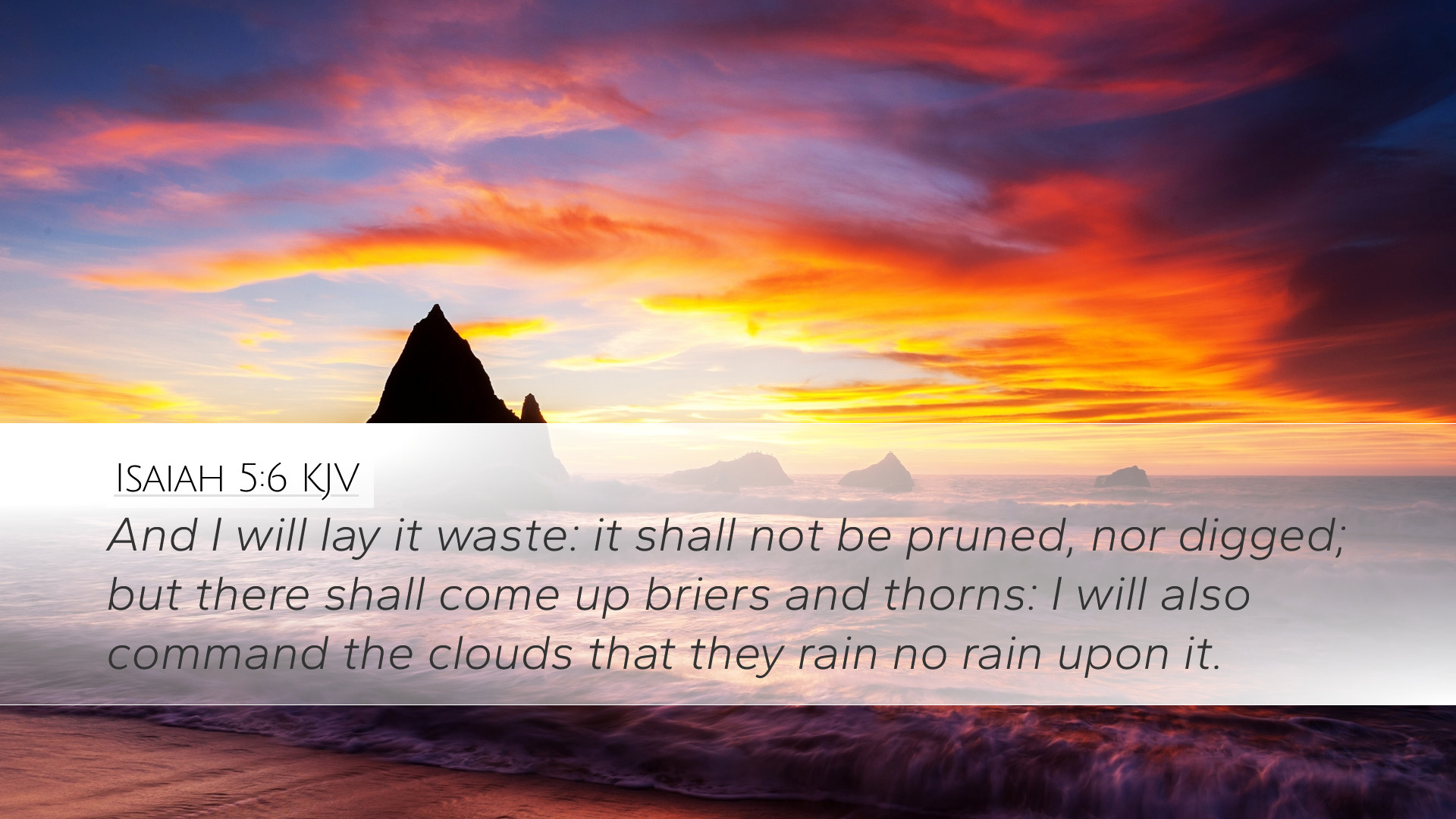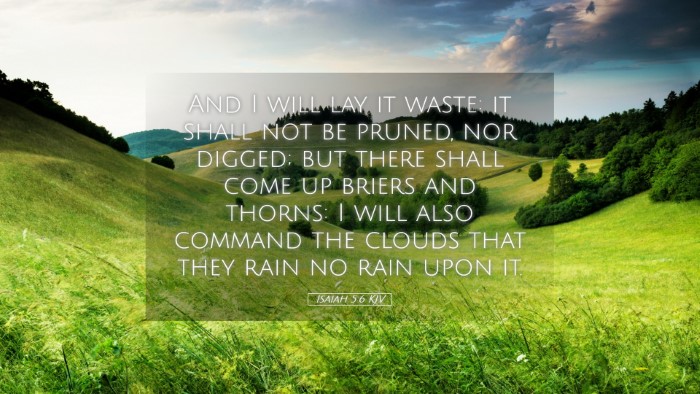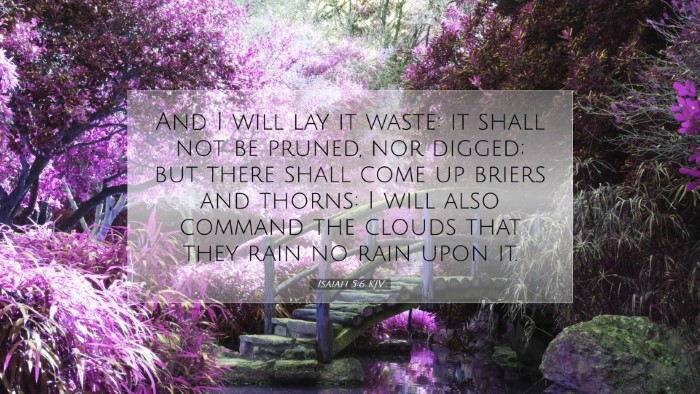Commentary on Isaiah 5:6
Verse Reference: Isaiah 5:6 (KJV) - "And I will lay it waste: it shall not be pruned, nor digged; but there shall come up briers and thorns: I will also command the clouds that they rain no rain upon it."
Introduction
The prophetic words in Isaiah 5:6 are an integral part of the "Song of the Vineyard," representing God's judgment upon Israel for its unfaithfulness. In this verse, God declares the withdrawal of His care and the resulting desolation. This commentary synthesizes insights from various public domain commentaries to derive a deeper understanding of the text's implications for both ancient Israel and contemporary readers.
Contextual Analysis
Isaiah 5 serves as a parable, illustrating Israel as God's vineyard, which He had lovingly cultivated. Each element in the parable reveals a facet of God's relationship with His people and the expectations He held for them. The judgments articulated in this verse must be viewed through the lens of covenantal theology.
Background
Matthew Henry notes that this passage occurs amidst a series of oracles condemning the wickedness of Judah. In the preceding verses, God expresses disappointment over the fruitlessness of the vineyard despite His extensive efforts to cultivate it (Isaiah 5:1-4). God's intention to lay it waste signals a profound shift — from care to abandonment.
Symbolism of the Vineyard
Albert Barnes elucidates that vineyards in ancient Israel symbolized prosperity, blessing, and the intimate relationship between God and His people. The desolation indicated by 'briers and thorns' serves as a poignant metaphor for the spiritual decay and barrenness that results from disobedience to God’s will.
Interpretative Insights
The promise of desolation ('I will lay it waste') indicates a significant withdrawal of divine blessings. Adam Clarke emphasizes that God's cessation of care creates an environment where only undesirable growth can thrive. Briers and thorns represent the corruption and strife that emerge when God’s favor is absent.
Philosophical Implications
This verse teaches the importance of divine cultivation. The absence of 'pruning' and 'digging' signifies a lack of guidance and discipline, suggesting that spiritual neglect leads to moral and ethical decline. Henry further explains that the vanity of the vineyard, once fruitful, now left to its own devices, underscores a theological truth: without God's intervention, human nature trends toward degradation.
Theological Considerations
- Difficulties of Judgment: Isaiah’s imagery confronts readers with the harsh reality of divine judgment as a necessary response to persistent sinfulness.
- Grace and Judgment: While God’s abandonment signals judgment, it also emphasizes His grace — the opportunity to return to Him while He is still near (before the rains cease altogether).
Practical Applications
Pastors, students, and theologians can draw several practical implications from Isaiah 5:6:
- Encouragement for Repentance: The verse highlights the urgency of repentance and returning to the divine care of God before facing irrevocable desolation.
- Understanding Spiritual Disciplines: Emphasizing the necessity of spiritual pruning and discipline in the lives of believers can foster healthier faith communities.
- Covenantal Responsibility: This scripture serves as a reminder of the seriousness of covenantal relationships — both social and spiritual. Faithfulness is required to experience God’s blessings continuously.
Conclusion
Isaiah 5:6 offers a profound warning against spiritual neglect and the consequences that follow. The desolation described is not merely a literal agricultural judgment but serves as a significant commentary on the relationship between God and His people. Through careful study and reflection on this verse, we are invited to cultivate our spiritual lives with intention and humility, recognizing the continual need for God's sustaining presence and guidance in our lives.


